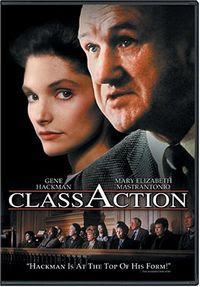
I don't know enough about what happened here to put forth a fully informed judgment but when has that ever stopped someone from doing so?
I would think that if all that the companies did were to provide cable boxes pursuant to whatever agreement they had with Charter Communications they are and should not be parties to any action against Charter based on whatever scheme Charter did to perpetrate a fraud. Now this would be in a civil action, oddly enough under criminal law they could be charged as parties if they aided and abetted the scheme.
A Win for Investors
Wall Street Journal
The Supreme Court did the economy a favor yesterday by declining to open up a whole new avenue -- er, superhighway -- for securities class-action suits. But the decision in Stoneridge v. Scientific Atlanta may be most remarkable because three justices nonetheless voted to validate the trial bar's "scheme liability" scam.
The case rested on the notion that Scientific Atlanta and Motorola, which sold cable boxes to Charter Communications, should be liable for an accounting fraud by Charter in 2001. Charter faced an earnings shortfall and prevailed on the cable-box makers to structure sales agreements in a way that Charter used to boost its reported cash flow. Both Motorola and Scientific Atlanta properly accounted for the sales. But Stoneridge, an investment firm that owned Charter stock, also named them as defendants in a class action filed after Charter's fraud came to light. Stoneridge's argument was, in effect, that by doing business with Charter on Charter's terms, the two companies facilitated the fraud.
Anthony Kennedy's majority opinion was joined by Antonin Scalia, Clarence Thomas, Samuel Alito and Chief Justice John Roberts. Justice Kennedy correctly observes that dragging Charter's suppliers into the case amounts to "a private cause of action against the entire marketplace in which the issuing company operates." Pleasantly surprising for this too-activist Court, the majority even notes that Congress debated whether to create a private cause of action against "aiders and abettors" when it passed the Private Securities Litigation Reform Act in 1995, and decided against doing so.
And yet the three dissenters -- John Paul Stevens, Ruth Bader Ginsburg and David Souter -- argued for precisely such an expansion of class actions. (Stephen Breyer recused himself.) Justice Stevens's dissent argues that "every wrong shall have a remedy."
Well, Stoneridge does have a remedy, and that is the right to sue the perpetrator of the fraud -- Charter. Even class actions against actual fraudsters are of dubious merit, because they merely transfer wealth from one set of shareholders to another, neither of whom are guilty parties. The lawyers bringing the suit are the only net winners in almost every case, since over time an investor is as likely to be a payor as a recipient of such claims. But a class action against companies in which the "class" never even owned any shares is at an even further remove from any claim to justice. It is wealth redistribution, pure and simple.
Yesterday's early stories on the case described the ruling as a setback for "investors," which says a lot about the sympathies or ignorance of the press. Investors were fortunate that at least five Justices know the difference between genuine fraud and legal opportunism.
Well, Stoneridge does have a remedy, and that is the right to sue the perpetrator of the fraud -- Charter. Even class actions against actual fraudsters are of dubious merit, because they merely transfer wealth from one set of shareholders to another, neither of whom are guilty parties. The lawyers bringing the suit are the only net winners in almost every case, since over time an investor is as likely to be a payor as a recipient of such claims. But a class action against companies in which the "class" never even owned any shares is at an even further remove from any claim to justice. It is wealth redistribution, pure and simple.
Yesterday's early stories on the case described the ruling as a setback for "investors," which says a lot about the sympathies or ignorance of the press. Investors were fortunate that at least five Justices know the difference between genuine fraud and legal opportunism.